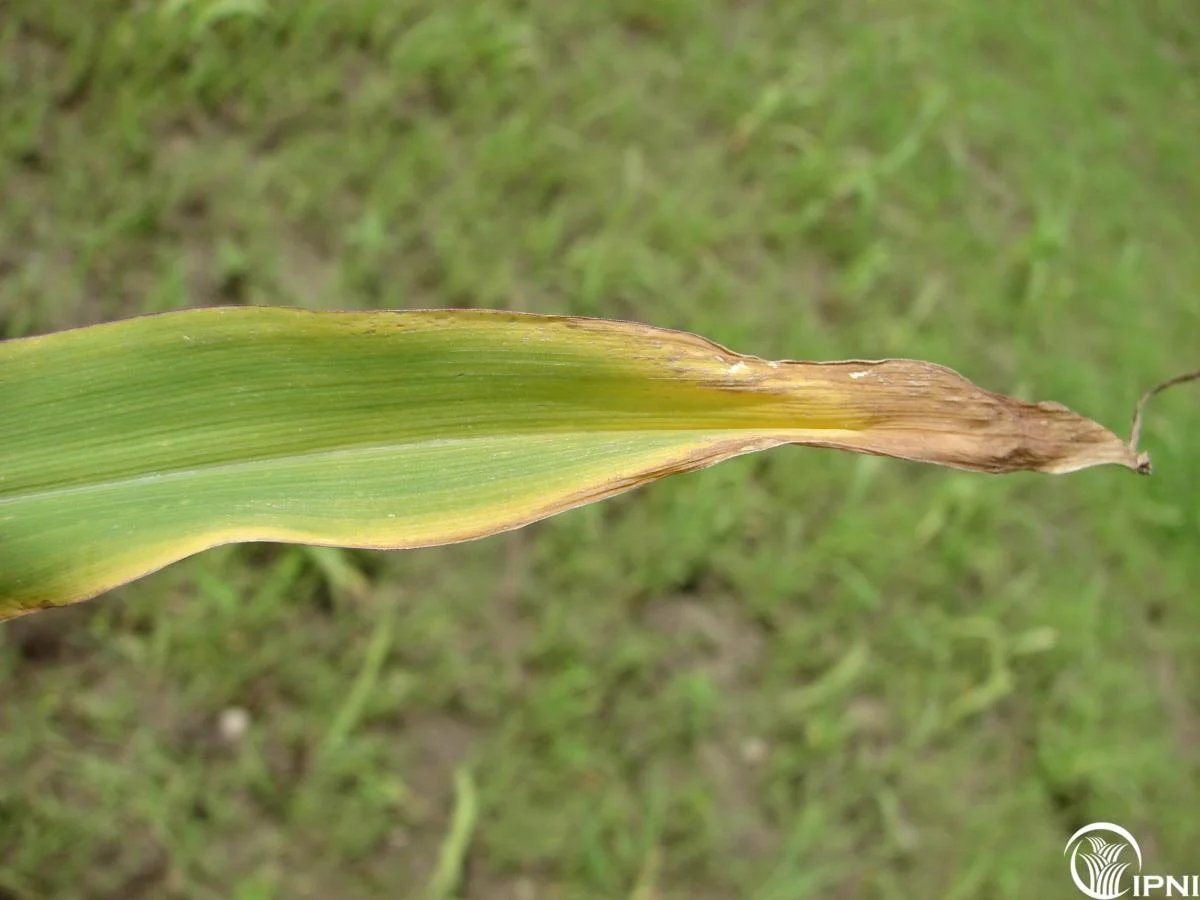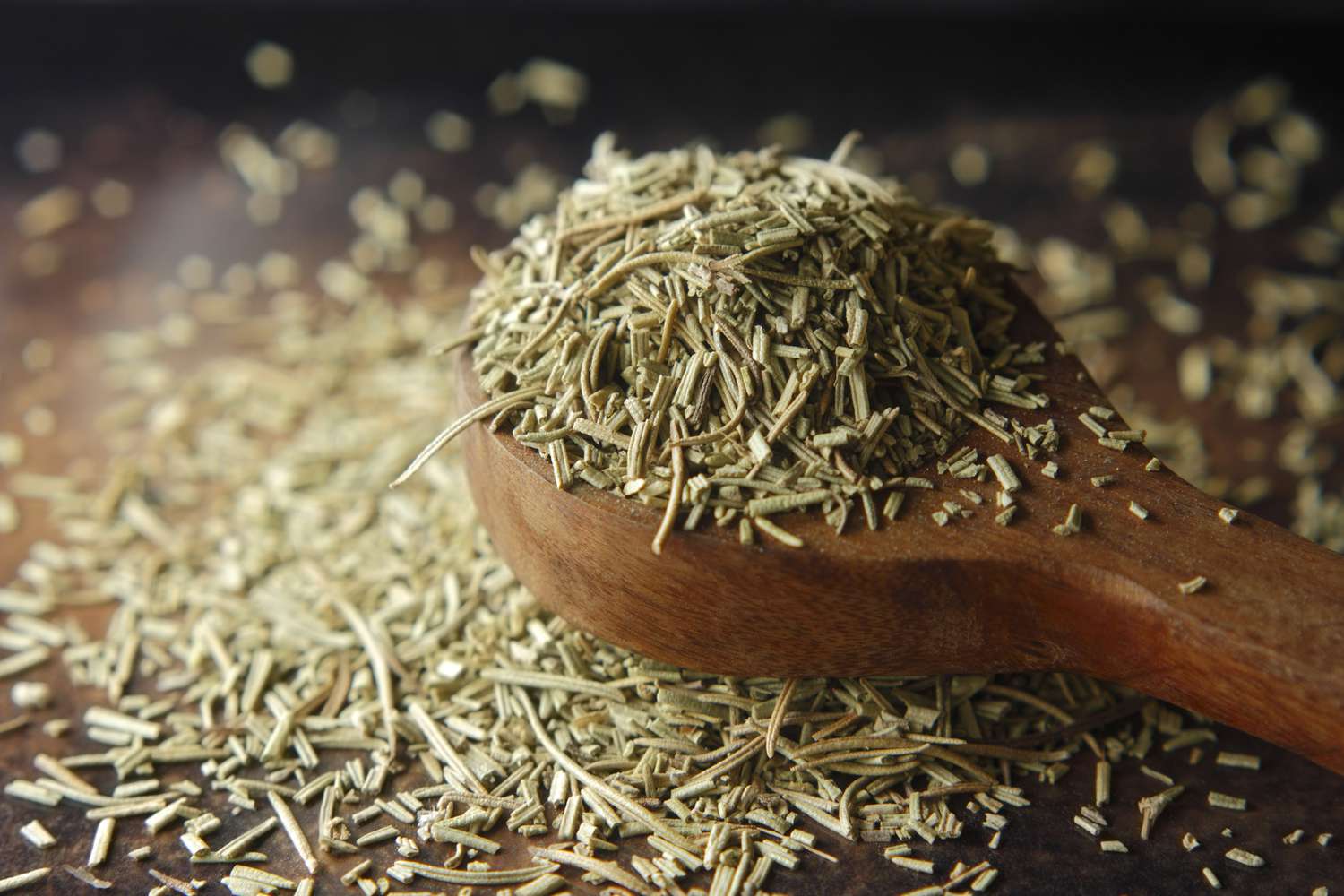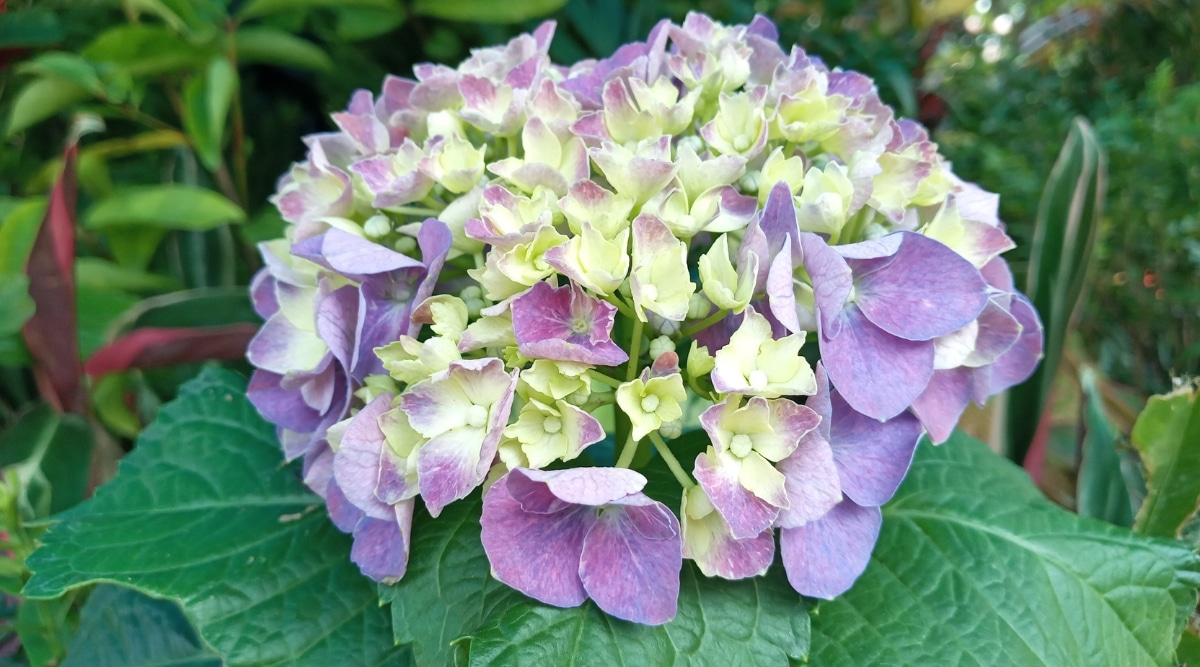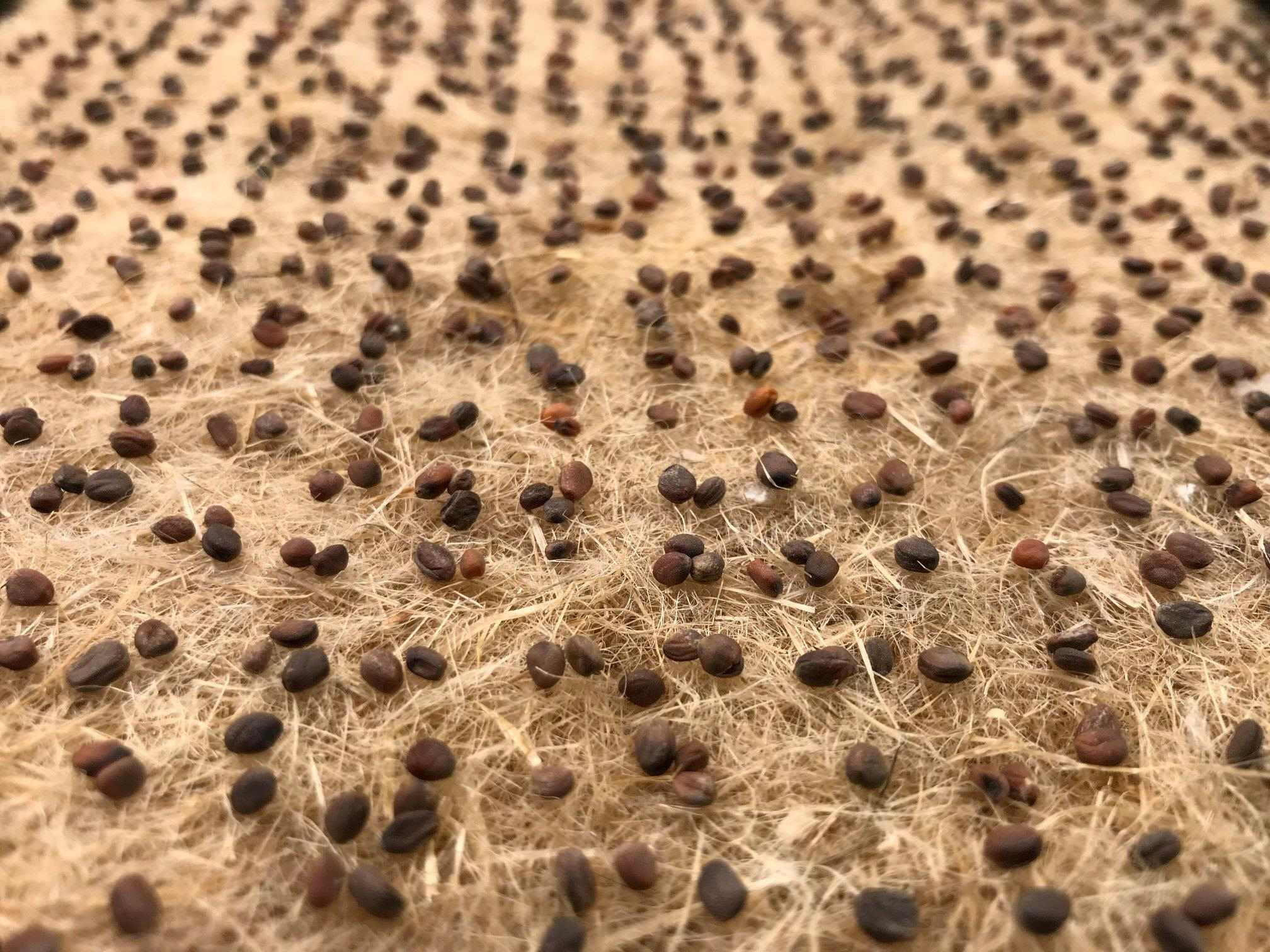Home>Gardening News and Trends>Gardening Trends>What Herbs To Use On Turkey
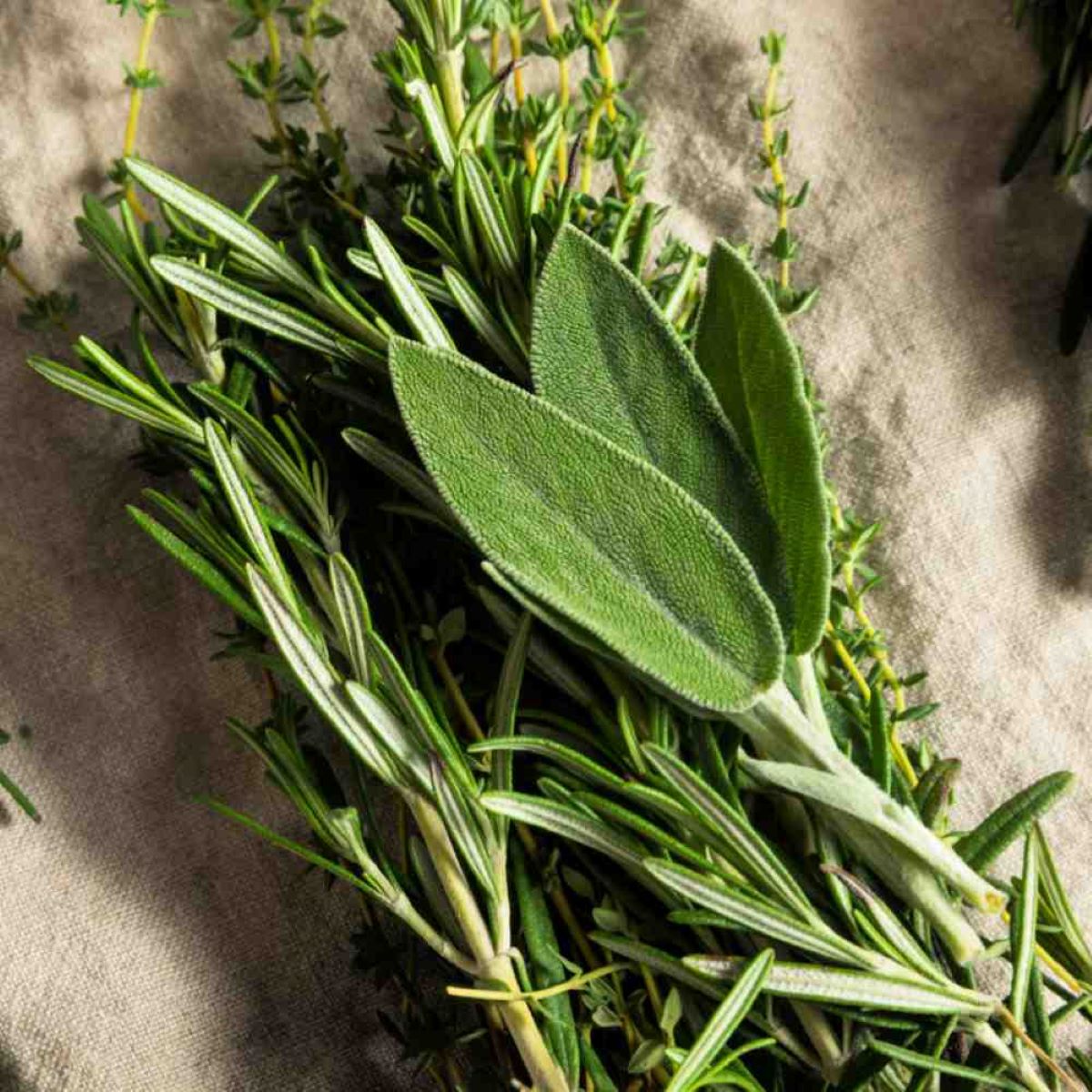

Gardening Trends
What Herbs To Use On Turkey
Modified: January 22, 2024
Discover the latest gardening trends and find out which herbs to use on your turkey this season. Elevate your cooking with fresh, homegrown flavors.
(Many of the links in this article redirect to a specific reviewed product. Your purchase of these products through affiliate links helps to generate commission for Chicagolandgardening.com, at no extra cost. Learn more)
Table of Contents
Introduction
Gardening is a timeless and rewarding hobby that allows us to connect with nature while reaping the benefits of fresh produce and beautiful plants. One of the most popular aspects of gardening is growing herbs. Whether used for cooking, herbal remedies, or simply for their fragrant appeal, herbs are versatile and delightful additions to any garden.
When it comes to culinary uses, herbs are essential in enhancing the flavors of our favorite dishes. Among the many culinary applications of herbs, seasoning a turkey is a tradition that has stood the test of time. The right combination of herbs can infuse a turkey with rich flavors and aromas, creating a mouthwatering centerpiece for any holiday table.
In this article, we will explore the top herbs that are commonly used to season turkey. From classic options like rosemary and sage to lesser-known choices like marjoram and tarragon, each herb will bring its unique taste and aroma to your Thanksgiving or Christmas feast.
Whether you are an experienced gardener or a novice enthusiast, this guide will help you choose the best herbs for seasoning your turkey. Let’s dive in and discover the secrets to creating a turkey that is both delicious and memorable.
Herbs for Seasoning Turkey
Seasoning a turkey with herbs adds depth and complexity to its flavor, ensuring a delicious and aromatic main course. Here are ten herbs that are commonly used to season turkey:
- Rosemary: Known for its pine-like fragrance, rosemary pairs perfectly with turkey. Its strong flavor adds a delightful earthiness to the meat.
- Thyme: With its subtle lemony taste, thyme brings a refreshing and savory element to roasted turkey. It also complements other herbs beautifully.
- Sage: Sage is a classic herb used in turkey seasoning. Its warm and peppery flavor complements the rich taste of the meat and creates a nostalgic Thanksgiving aroma.
- Parsley: Often used as a garnish, parsley contributes a mild, fresh taste to turkey. It adds a pop of color and brightens the overall flavor of the dish.
- Marjoram: With a flavor similar to oregano but milder, marjoram offers a subtle sweetness that pairs well with turkey. It brings a warm, aromatic note to the dish.
- Tarragon: Tarragon has a distinct anise-like flavor that complements the richness of turkey. Its sweet and slightly peppery taste adds a unique twist to the seasoning.
- Oregano: Aromatic and flavorful, oregano adds a Mediterranean touch to turkey. Its robust taste pairs well with tomato-based stuffing or if you prefer a hint of Italian seasoning.
- Basil: Although traditionally associated with Italian cuisine, basil’s bright and slightly peppery taste can also elevate the flavor of roasted turkey or turkey gravy.
- Dill: Dill offers a unique tangy and slightly sweet flavor to turkey. It adds a refreshing and unexpected taste to the seasoning and is popular in Scandinavian cuisine.
- Bay Leaves: While not used for direct seasoning, bay leaves are often placed inside the turkey during roasting. They release a subtle fragrance that enhances the overall flavor.
Experimenting with different combinations of these herbs will allow you to create your own signature blend. Whether you prefer a traditional seasoning or a more adventurous twist, these herbs will elevate the taste of your turkey and impress guests with the depth of flavors.
Rosemary
Rosemary is a versatile herb that has been used for centuries to enhance the flavors of various dishes, including roasted meats like turkey. With its distinct pine-like fragrance and robust flavor, rosemary adds a delightful earthiness to the meat.
When using rosemary to season a turkey, there are a few different methods you can try:
- Whole Sprigs: One simple way to incorporate rosemary is by placing whole sprigs inside the turkey cavity before roasting. This allows the herb to infuse its aroma into the meat as it cooks.
- Chopped Leaves: Another option is to chop the rosemary leaves and mix them with other herbs, along with butter or oil, to create a flavorful rub. Massage the mixture onto the turkey, ensuring that the herb blend is evenly distributed on the skin.
- Skewers: For a visually appealing presentation, you can also use rosemary stalks as skewers to secure the turkey skin or truss the bird. This method not only adds flavor but also creates an attractive display.
Rosemary pairs well with other herbs such as thyme and sage, so consider combining them to create a delicious herb blend for your turkey. The combination of these herbs will add complexity and depth to the flavor profile, enhancing the overall taste of the meat.
When using rosemary, it is important to remember that a little goes a long way. Its strong flavor can easily overpower other ingredients if used excessively. Start with a moderate amount and adjust to your taste preferences.
In addition to its flavor, rosemary also offers health benefits. It is a rich source of antioxidants and has been associated with improved digestion and enhanced memory function.
Whether you choose to use fresh rosemary sprigs, chopped leaves, or rosemary-infused oil, this herb will undoubtedly elevate the taste of your turkey. Its aromatic and savory notes will create a memorable and flavorful dining experience for you and your guests.
Thyme
Thyme is a versatile herb that adds a subtle lemony flavor and a delightful aroma to dishes. When it comes to seasoning turkey, thyme is a popular choice due to its ability to enhance the savory taste of the meat.
Here are a few ways to incorporate thyme into your turkey seasoning:
- Fresh Sprigs: Placing fresh thyme sprigs inside the turkey cavity before roasting is a simple and effective way to infuse the herb’s flavors into the meat.
- Dried Thyme: If fresh thyme is not available, dried thyme can be a suitable alternative. The dried leaves can be added to a herb blend or sprinkled directly onto the turkey before cooking.
- Thyme Butter: Create a flavorful thyme butter by blending softened butter with finely chopped thyme leaves. Gently loosen the skin of the turkey and spread the thyme butter underneath, allowing it to melt and permeate the meat during roasting.
Thyme pairs exceptionally well with other herbs such as rosemary and sage. Combining these herbs creates a harmonious flavor profile that complements the turkey perfectly.
Not only does thyme add flavor to the turkey, but it also offers health benefits. It contains antioxidants and compounds that have antimicrobial properties, which can support your immune system and overall well-being.
When using thyme, moderation is key to avoid overpowering the other flavors. Start with a modest amount and adjust according to your taste preferences. Remember that dried thyme has a stronger flavor than fresh thyme, so adjust accordingly when using it.
Whether used as a garnish, infused into butter, or added to a herb blend, thyme brings a refreshing and savory element to turkey. Its aromatic notes and subtle lemony taste will undoubtedly elevate the flavors of your holiday meal.
Sage
Sage is a classic herb that is often associated with traditional holiday cooking, particularly with Thanksgiving turkey. It has a warm and peppery flavor that complements the rich taste of the meat, making it an excellent choice for seasoning.
Here are a few ways to incorporate sage into your turkey seasoning:
- Sage Leaves: Using whole sage leaves is a simple and effective way to infuse the flavors into the turkey. Place a few leaves inside the turkey cavity and underneath the skin before roasting, allowing the aroma and flavor to permeate the meat.
- Sage Rub: Create a savory herb rub by finely chopping sage leaves and combining them with other herbs like thyme, rosemary, and parsley. Mix the herbs with butter or olive oil to create a paste, then rub it onto the turkey skin for an added burst of flavor.
- Sage Stuffing: If you’re making a stuffing for your turkey, add finely chopped sage leaves to the mix. Sage provides a depth of flavor to the stuffing that complements the turkey beautifully.
Sage is often paired with other herbs like thyme and rosemary to create a well-rounded flavor profile. The combination of these herbs brings out the best in each other and enhances the taste of the turkey.
Aside from its culinary uses, sage also offers potential health benefits. It contains compounds that have antioxidant and anti-inflammatory properties, and it has been used for centuries in traditional medicine for its potential digestive and memory-enhancing properties.
When using sage, remember that a little goes a long way. Its robust flavor can easily overpower the other ingredients if used excessively. Start with a modest amount and adjust to your taste preferences.
Whether you choose to use fresh sage leaves, create a herb rub, or incorporate sage into your stuffing, this herb will infuse your turkey with a warm and peppery flavor. Its distinct taste and aroma will make your holiday meal truly memorable.
Parsley
Parsley is a versatile herb that adds a fresh and mild flavor to dishes. While it is often used as a garnish, parsley can also contribute to the overall seasoning of a turkey, bringing a pop of color and brightness to the dish.
Here are a few ways to incorporate parsley into your turkey seasoning:
- Chopped Parsley: Finely chop fresh parsley leaves and sprinkle them over the turkey before roasting. This will add a touch of freshness and a subtle herbaceous note.
- Parsley Butter: Create a delicious parsley butter by blending softened butter with chopped parsley. Gently spread the parsley butter under the turkey’s skin before roasting to infuse the meat with a mild and savory flavor.
- Herb Blend: Combine parsley with other herbs like thyme, rosemary, and sage to create a flavorful herb blend. Use this blend to season the turkey, either by rubbing it onto the skin or mixing it with butter and applying it under the skin.
Parsley pairs well with a variety of other herbs and spices, making it a versatile addition to your turkey seasoning. Its mild flavor allows the other herbs to shine while adding a fresh and vibrant element to the overall taste.
Besides enhancing the flavor of your turkey, parsley also offers health benefits. It is a rich source of vitamins, minerals, and antioxidants, which contribute to overall well-being and may help support digestion and immune function.
It is important to note that parsley comes in two main varieties: curly leaf and flat-leaf (also known as Italian parsley). Both varieties can be used to season turkey, but flat-leaf parsley tends to have a stronger flavor and is often preferred by chefs for its robust taste.
Whether used as a garnish or incorporated into a herb blend, parsley adds a touch of freshness and vibrancy to your turkey. Its mild flavor complements the other herbs and spices, creating a well-rounded and visually appealing dish.
Marjoram
Marjoram is an herb that closely resembles oregano in terms of appearance and flavor. It has a milder taste compared to oregano, making it a great addition to turkey seasoning for those who prefer a more subtle herbaceous flavor.
Here are a few ways to incorporate marjoram into your turkey seasoning:
- Fresh Sprigs: Place fresh marjoram sprigs inside the turkey cavity before roasting. As the turkey cooks, the heat will release the herb’s pleasant aroma and infuse it into the meat.
- Dried Marjoram: If fresh marjoram is not available, dried marjoram can be used as a suitable substitute. Sprinkle the dried leaves directly onto the turkey or include them in a herb blend for a more concentrated flavor.
- Marjoram Rub: Finely chop fresh marjoram leaves and mix them with butter or olive oil to create a flavorful rub. Massage the mixture onto the turkey skin to distribute the herb blend evenly.
Marjoram pairs well with other herbs like thyme, rosemary, and sage, adding a warm and aromatic note to the overall seasoning. The combination of these herbs creates a balanced and enticing flavor profile for your turkey.
In addition to its culinary uses, marjoram has been traditionally used for its potential health benefits. It is believed to have properties that support digestion and may help relieve minor respiratory issues.
When using marjoram, it’s important to note that a little goes a long way. Its mild flavor can be easily overwhelmed if used excessively. Start with a small amount, taste as you go, and adjust according to your preferences.
Whether used fresh or dried, marjoram adds a subtle sweetness and a warm aroma to your turkey. Its delicate flavor enhances the overall taste without overpowering the other ingredients, making it a delightful addition to your holiday feast.
Tarragon
Tarragon is a unique herb known for its distinct anise-like flavor. It adds a delightful twist to turkey seasoning, bringing a subtle sweetness and a touch of complexity to the dish.
Here are a few ways to incorporate tarragon into your turkey seasoning:
- Tarragon Leaves: Place fresh tarragon leaves inside the turkey cavity before roasting. The heat will release the herb’s aromatic compounds, infusing the meat with its unique flavor.
- Tarragon Butter: Create a flavorful tarragon butter by blending softened butter with finely chopped tarragon leaves. Gently spread the tarragon butter under the turkey’s skin before cooking. The melted butter will help baste the meat and infuse it with the herb’s sweet and slightly peppery taste.
- Tarragon Vinegar: Infuse white wine vinegar with fresh tarragon leaves to create tarragon vinegar. Use this tangy and aromatic vinegar to marinate the turkey before roasting, enhancing the overall flavor of the meat.
Tarragon pairs exceptionally well with poultry, making it an excellent choice for turkey seasoning. It can be used on its own or combined with other herbs like thyme, rosemary, or parsley to create a flavorful herb blend.
In addition to its culinary uses, tarragon has been associated with potential health benefits. It contains compounds that may have anti-inflammatory properties and could support digestion and promote overall well-being.
When using tarragon, keep in mind that its flavor can be overpowering if used excessively. Start with a moderate amount and adjust to your taste preferences. The subtle sweetness and slightly peppery taste of tarragon should complement the other flavors without overwhelming them.
Whether used as whole leaves, infused into butter, or incorporated into vinegar, tarragon adds a unique twist to your turkey. Its distinctive taste and aroma will elevate your holiday meal and leave a lasting impression on your taste buds.
Oregano
Oregano is a popular herb that is commonly used in Mediterranean and Italian cuisines. It adds a distinctive flavor with its robust and aromatic profile, making it a great choice for seasoning turkey.
Here are a few ways to incorporate oregano into your turkey seasoning:
- Whole Sprigs: Place whole oregano sprigs inside the turkey cavity before roasting. As the turkey cooks, the heat will release the herb’s essential oils, infusing the meat with its delightful aroma.
- Dried Oregano: If fresh oregano is not available, dried oregano can be used as a suitable substitution. Sprinkle the dried oregano over the turkey before cooking or include it in a herb blend for added flavor.
- Oregano Rub: Create a fragrant herb rub by combining finely chopped oregano with other herbs like thyme, rosemary, and garlic. Mix the herbs with butter or olive oil to create a paste, then rub it onto the turkey skin to infuse the meat with a Mediterranean twist.
Oregano pairs well with a variety of other herbs and spices, allowing you to experiment with different flavor combinations. It can be combined with thyme, rosemary, sage, or even basil to create a truly unique and flavorful herb blend for your turkey.
Aside from its culinary uses, oregano also offers potential health benefits. It is rich in antioxidants and contains compounds that may have anti-inflammatory and antimicrobial properties, which can support overall well-being.
When using oregano, it’s important to keep in mind that its flavor can be strong. Start with a moderate amount and adjust according to your taste preferences. Oregano is known for its intense and robust taste, so a little can go a long way.
Whether used as whole sprigs, dried leaves, or incorporated into a rub, oregano will add a distinct flavor to your turkey. Its aromatic and robust notes will transport your taste buds to the Mediterranean, enhancing the overall taste of your holiday feast.
Basil
Basil is an herb that is often associated with Italian cuisine, but its fresh and slightly peppery taste can also elevate the flavor of your roasted turkey. With its bright and aromatic profile, basil brings a refreshing twist to your turkey seasoning.
Here are a few ways to incorporate basil into your turkey seasoning:
- Fresh Leaves: Tear or chop fresh basil leaves and sprinkle them over the turkey before cooking. The herb’s vibrant flavor and aroma will infuse the meat as it roasts, adding a touch of freshness.
- Basil Pesto: Create a flavorful basil pesto by blending fresh basil leaves with garlic, Parmesan cheese, pine nuts, and olive oil. Spread the basil pesto over the turkey skin or gently loosen the skin and spread it underneath for a burst of bold, herbaceous flavor.
- Herb Blend: Combine basil with other herbs like thyme, rosemary, and oregano to create a delicious herb blend. Use this blend to season the turkey, either by rubbing it onto the skin or mixing it with butter or oil and applying it under the skin.
Basil pairs well with a range of ingredients, including tomatoes, garlic, and citrus flavors. Its versatility allows you to experiment with different combinations to create a unique seasoning profile for your turkey.
Besides its culinary uses, basil also offers potential health benefits. It is rich in antioxidants and contains essential oils that may have anti-inflammatory properties, supporting overall well-being.
When using basil, it’s best to add it towards the end of the cooking process to preserve its fresh flavor and vibrant color. The heat from roasting can diminish some of its aromatic qualities, so it is ideal for using it as a topping or incorporating it into your seasoning just before serving.
Whether used fresh, in pesto, or as part of an herb blend, basil adds a touch of brightness and complexity to your turkey. Its distinct flavor elevates the overall taste of the meat, leaving a memorable impression on your taste buds.
Dill
Dill is an herb known for its unique tangy flavor and delicate aroma. While it is often associated with pickles and seafood, dill can also be an excellent addition to your turkey seasoning, bringing a refreshing and unexpected taste to the dish.
Here are a few ways to incorporate dill into your turkey seasoning:
- Dill Sprigs: Place fresh dill sprigs inside the turkey cavity before roasting. The heat will release the herb’s pleasant fragrance, infusing the meat with its subtle tanginess.
- Chopped Dill: Finely chop fresh dill leaves and sprinkle them over the turkey before cooking. This adds a burst of fresh flavor and a hint of citrus to the meat.
- Dill Butter: Create a delicious dill butter by blending softened butter with chopped dill leaves. Gently spread the dill butter under the turkey’s skin before roasting, allowing it to melt and create a flavorful basting sauce.
Dill pairs well with a variety of herbs like parsley, basil, and chives. Combining these herbs creates a harmonious blend that complements the turkey’s flavors while adding a unique twist to the overall seasoning.
In addition to its culinary uses, dill offers potential health benefits. It contains essential oils and compounds that may have antioxidant and anti-inflammatory properties, supporting digestive health and overall well-being.
When using dill, it’s important to note that its flavor is delicate, so it’s best to add it towards the end of the cooking process to preserve its freshness. Heat can diminish its vibrant taste, so incorporating it as a finishing touch or using it as a garnish is the best way to showcase its flavors.
Whether used as whole sprigs, chopped leaves, or incorporated into butter, dill adds a refreshing and unexpected tanginess to your turkey. Its bright flavor and citrus notes will create a delightful contrast and enhance the overall taste of your holiday meal.
Bay Leaves
Bay leaves are aromatic leaves commonly used in cooking for their distinct flavor. While bay leaves are not typically used for direct seasoning, they are often added to the turkey during the cooking process to infuse a subtle fragrance and enhance the overall flavor.
Here are a few ways to incorporate bay leaves into your turkey preparation:
- Place Inside the Cavity: Gently tuck a couple of bay leaves inside the turkey cavity before roasting. As the turkey cooks, the heat will release the aromatic compounds from the leaves, imparting a subtle but delightful fragrance to the meat.
- Add to the Cooking Liquid: If you are cooking your turkey in a liquid, such as broth or wine, add a few bay leaves to the liquid. The heat will extract the essence of the leaves, enriching the cooking liquid and subsequently infusing the turkey with flavor.
- Grind the Leaves: Grind dried bay leaves into a powder and incorporate it into your favorite spice rub. Rub the mixture onto the turkey before cooking to add a subtle depth of flavor.
Bay leaves are known for their unique taste that is both herbal and slightly floral. Although the leaves themselves are not consumed, their presence contributes to the overall aroma and flavor profile of the turkey.
While bay leaves don’t offer significant health benefits, they contain essential oils that have mild antimicrobial properties. Additionally, the aroma of bay leaves has been associated with potential calming effects on the nervous system.
It is important to note that bay leaves are tough and can present a choking hazard if consumed accidentally. Ensure that they are removed from the turkey before serving, as they are meant to impart their flavor to the meat, not to be eaten directly.
By using bay leaves in your turkey preparation, you can add a subtle layer of aroma and flavor to your dish. The fragrance of the leaves will tantalize your senses and contribute to the overall appeal of your holiday feast.
Conclusion
Seasoning a turkey with herbs is a wonderful way to elevate its flavor and create a delicious and aromatic centerpiece for your holiday meal. Each herb mentioned in this guide brings its unique taste and aroma to the turkey, allowing you to customize the seasoning to your preferences.
From classic choices like rosemary, thyme, and sage to more adventurous options like marjoram, tarragon, and dill, there are endless possibilities for creating herb combinations that suit your taste. Whether you prefer a traditional flavor profile or want to experiment with bold and unexpected twists, these herbs offer versatility and versatility in enhancing the taste of your turkey.
When using herbs for seasoning, it’s important to remember to use them in moderation. Each herb has its own distinct flavor and intensity, and too much of any herb can overpower the delicate taste of the meat. Start with a small amount and adjust according to your taste preferences, keeping in mind that it’s always easier to add more herbs than to remove them.
While these herbs contribute to the deliciousness of your turkey, they also offer potential health benefits. Many of them contain antioxidants, vitamins, and minerals that support well-being, making your holiday feast not only a treat for the taste buds but also a nourishing experience.
Whether you choose to use them individually or create herb blends, these herbs will undoubtedly enhance the flavors of your turkey and impress your guests with the depth and complexity of the seasoning.
So, this holiday season, unleash your creativity in the kitchen, experiment with different herb combinations, and let the magic of herbs take your turkey to new heights of deliciousness. Happy seasoning and enjoy your flavorful and memorable turkey feast!
